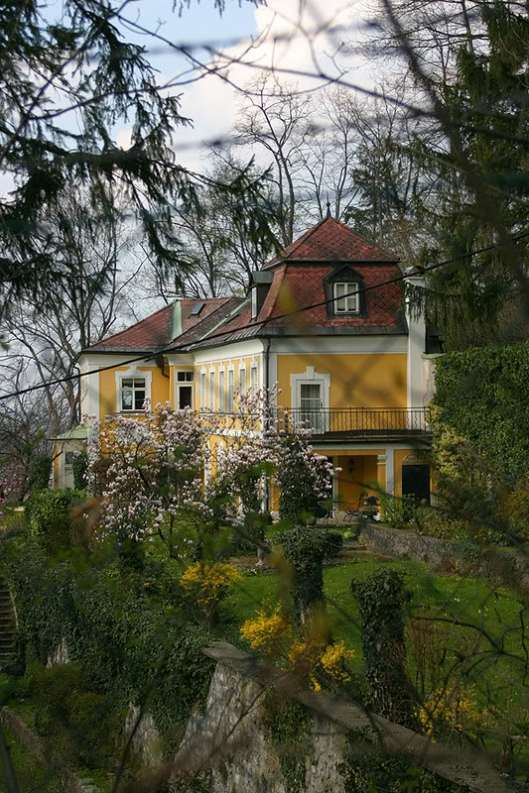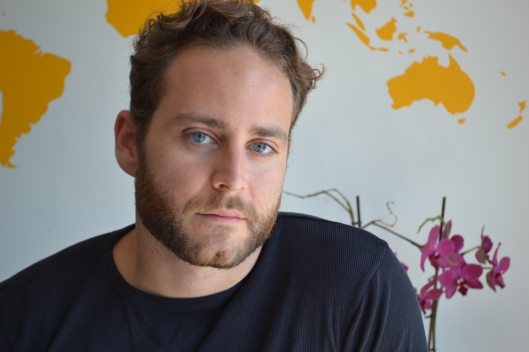Tags
Austria, Empire, Europe, Guapa, Middle East, Saleem Haddad, Stefan Zweig, Vienna
I have this old habit, in the evening before going to sleep I like to read a little. Most of my reading is done in bed at night, I find this soothing and it helps me to fall asleep. In the last few weeks I have read two books by Stefan Zweig, (1881-1942), born in Vienna in a wealthy privilege family and died in Petropolis, Brazil in a suicide pact with his second wife Lotte Altmann. He was a famous writer, journalist, biographer of the first part of the 20th century and his books remain to this day great to read and give the reader wonderful insight. He also knew and was friends with all the great intellectuals of that time and do not be surprise to see him associated with so many famous people it is head spinning, Sigmund Freud, Romain Rolland, Richard Strauss, Rainer Maria Rilke and many others.
The first book was the celebrated biography of Marie-Antoinette the ill-fated Queen of France. I have already written on it in a previous post and I recommend it if you want to go beyond the fiction and the Hollywood version of her life.
The other book is the last one ever written by Zweig, The World of Yesterday. He mailed the manuscript to his editor the day he and his second wife committed suicide in Brazil.

Zweig describes himself as a European in the old world sense and at the same time a European of what we know today as the European Union. He is also an enigma for us who live at the end of the 20th and now in the 21 century. He was married for many years to Frederike Maria Von Winternitz but never mentions her in this book which covers the period from his birth in 1881 to 1925. The reader could be excused for thinking that Zweig was single, he divorced her in 1938 and she lived on until 1971. Was he a very private man? I do not know, in The World of Yesterday he certainly speaks volume about himself and his famous friends, his work, the people he knew and frequented, his travels, about being an assimilated and integrated Jew in the Austro-Hungarian Empire and he describes and analyses in minute detail the society of the time, a society which has totally disappeared now and lives on in print. You have to imagine a world, Europe, the old Empires ruled for hundreds of years by Princes and Sovereigns and then the total collapse in 1919, everything changing forever in a radical manner with the rise in Europe of Fascism and Bolchevism in Russia.
Zweig misses the old world, what he calls the Age of Golden Security assured by an aged Emperor (Franz-Joseph) over a vast Empire comprising dozen nationalities, languages and various religions. He explains the commercial reasons for the First World War, a war promoted by French and German Armament dealers and British and German competing merchant marine. Decades of Peace in Europe, the last war was in 1870 and lasted just over 3 weeks had lulled people into believing that not much would happen in 1914. No one could imagine that by November 1918 their world would no longer exist.
Zweig did spend part of the war in Zurich in neutral Switzerland, a land of plenty in a sea of wont. He describes a scene at the end of the war in 1918, the Kaiser in Germany has already gone into exile in Holland. Zweig stands on the platform of the Train Station at the Border with Switzerland on the Austrian side, everything around him is tattered and the people look tired and sad, the defeat and fall of the Austrian Empire is dawning on them. Zweig notices how the Station is becoming crowded with people, officials and Austrian soldiers though no trains is expected, he notices a beautiful black train of highly polished cars pulling slowly into the station, it’s the Imperial train, at the window stands Emperor Karl and his wife Empress Zita who are leaving Austria and going into exile, He refused to abdicate and simply left quietly, ending the 900 year rule of the Hapsburg dynasty, Zweig notices how everyone is silent and looks embarrassed, Zweig felt at that moment that this was truly the end. The end of it for him, for the world he had known, yes and how he then maybe went into a state of deep melancholy. The years that followed will see the rise of economic difficulties, Fascism in many European countries, the great depression, anti-semitism, nazism, the rise of Communism and then the Second World War. Of course for Zweig life goes on but on a different track, having the financial means he then travels abroad fleeing the chaos of the new and territorially small Republic of Austria, he will go to England as Freud did, to North America and finally to Brazil. Despite having a new young wife Lotte Altmann, he feels he cannot re-invent himself and fears aging, the past of Old Europe haunt him.

Zweig’s Villa in Salzburg on Kapuzinerberg 5, it is a private house today.
I find Zweig to be a complex person, a highly educated, refined person, he seems to be several people at once, the great writer, the friend of the cognoscenti, living in a world at the top of the social pyramid but then the other person appears emotional, overly sentimental, detached, revealing little of his personal life, this may be simply his 19th century sensibilities, gentile upbringing of not burdening people with personal details, something unknown to us in our world of the selfie.

The other book I read was just published by a first time author Saleem Haddad, a young thirty something man. Saleem Haddad is a writer and aid worker. He was born in Kuwait City to an Iraqi-German mother and a Palestinian-Lebanese father, and has lived in Jordan, Cyprus, Canada and the U.K. He has worked with Médecins Sans Frontières (Doctors Without Borders) and other international organizations in Yemen, Syria, Iraq, Libya, Lebanon, and Egypt. He and his partner have a greyhound, Jack and live in London.
His book published in March is entitled Guapa, the name of a Gay underground bar. I found this novel after a friend of mine who owns a bookstore café in Jordan recommended it to me. I liked the book instantly, the story is fast moving and happens in an unnamed Arab country, I was convinced it was Damascus the Capital of Syria but the author Haddad based the city where the protagonist lives on several cities, Amman, Beirut, Cairo. He does this on purpose and it works very well, though the President Dictator reminded me of Bashar Al-Assad and his wife Asma in their description in this book, this is why I thought it might be Syria.
Guapa gives a very accurate portrait of Arab life, family and society, I recognized it instantly, I came to care about Rasa and the people around him. Haddad says; Not naming the country also allows the story to take on a metaphorical nature: I really didn’t want to write a book that would be sold as an anthropological or political ‘study’ of one country. Instead I wanted to draw on common themes young Arabs across the region could relate to, regardless of their background. The book also shows in the narrative of the story that Arabs are not a monolithic group and the region is populated by many other people who are not Arabs.
The story of the book is about Rasa, a twenty-something-year-old gay man living in an unnamed Arab country, as he negotiates family, societal expectations, queerness, love, police brutality, authoritarianism, decorum, revolution, imperialist narratives, and Islamist extremism—all in the space of twenty-four hours. Throughout Rasa’s journey, the reader is thrown back into the losses, definitions, redefinitions, and rebellions that orbit his life. I would recommend reading this book for anyone who wishes to understand this part of the World and the people living in it. As they say, We are not in Kansas anymore.

Excellent reviews of books I had no knowledge of Larry. I too like to read in bed before I go to sleep. Your two books have been added to my reading list.
Ron
LikeLike
Glad to hear it, thank you.
LikeLike
I never cease to marvel at your reading list.
LikeLike
well thank you!!!
LikeLike
Both books sound interesting.
LikeLike
Guapa I recommend given the events in Syria.
LikeLike
sigh*…I’m reading the series on Wallander by Henning Mankell…learning a lot about the Scandinavian countries along with their laws ..
LikeLike
Thanks for the great recommendations and for the reminder about “Marie Antoinette.”
LikeLike
Normally, I start your posts when they come as an alert in my email, then click to the blog to finish. This post refused to release me.
LikeLike
I am glad you enjoyed it. Thanks.
LikeLike
OK, I forgive you for not giving me any credit in leading you to Zweig’s Marie Antoinette, The main thing is that it inspires others.
LikeLike
David, I believe I did give you credit in other entries on books etc… Yes it does inspire people to read, thanks to your excellent recommendations.
LikeLike
You are magnanimous that way.
LikeLike
Not magnanimous, just missionary in my zeal. Since I can’t always get the home reader here to follow my recommendations, I just have to put them out and about,..
LikeLiked by 1 person
…but (I meant to add) you have led me to Guapa. A phrase, incidentally, much in use by the sizeable gay Latin American diplomatic community in London to signify ‘hey, looking great!’
LikeLike
Yes the word is Spanish and when I first saw the title I thought of that word, Guapo, Guapa, very commonly used. The author does not say why he chose that title.
LikeLike